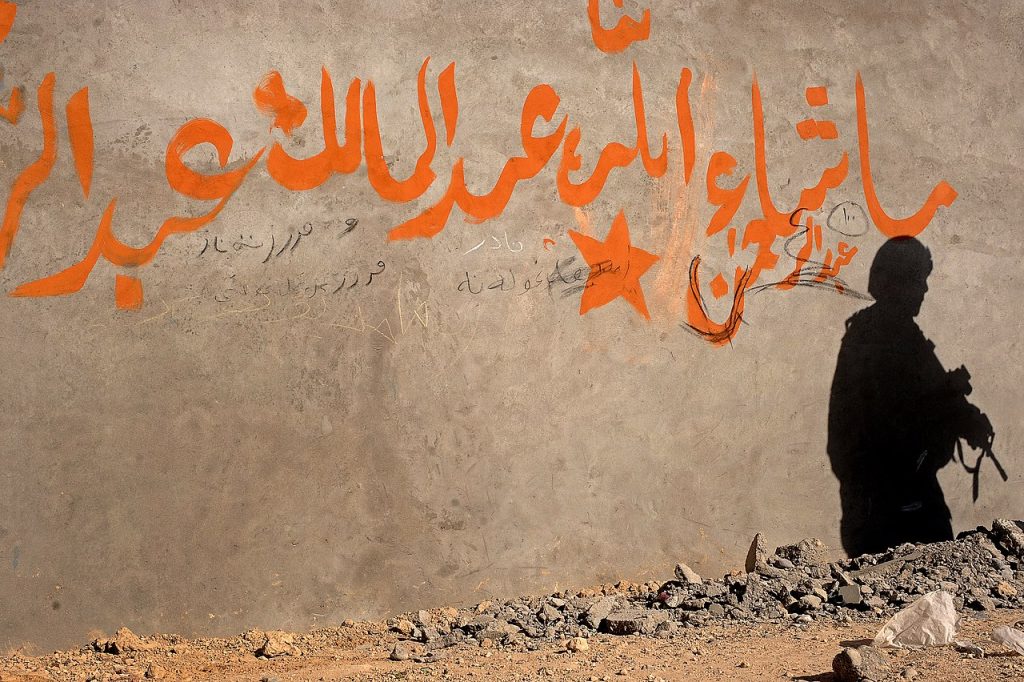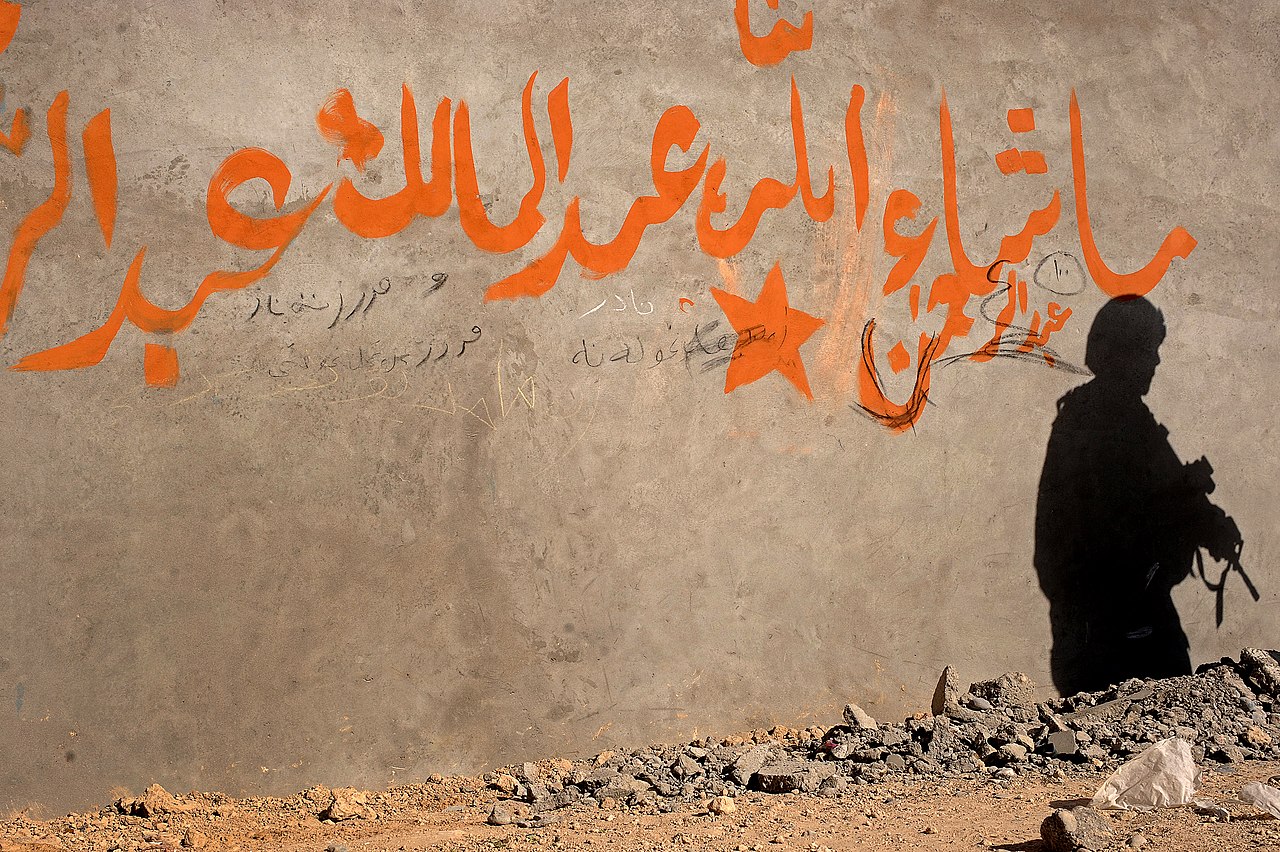Proper now, the dominant narrative of people who occupy political and financial power-centres, and people whose careers and lives are wedded to militaries, is {that a} new world struggle is looming, and that we have to prepare. One individual with such a story is the Swedish commander in chief, Micael Bydén, who said that each one Swedes should mentally put together for struggle. The German Defence Minister, Boris Pistorius, even has a yr: 2029.
The inclination of governments in the direction of struggle is matched by their army spending. In accordance with Stockholm Worldwide Peace Institute, complete international army expenditure in 2023 reached 2443 billion USD. That’s an all-time excessive. This spending frenzy on arms takes place towards a backdrop of inflation, extreme debt disaster, rising inequalities, extreme environmental degradation, widespread depletion of public budgets, and privatisation of public providers and infrastructure. Clearly, governments choose waging struggle over constructing peace.
Whereas the Swedish commander in chief is anticipating struggle, armed conflicts are already raging elsewhere: in Yemen, Sudan, Ukraine, Ethiopia, Syria and Western Sahara, to call just a few. A genocide is being dedicated in Gaza. Too many wars have already been fought in whose aftermath populations have misplaced as a lot as they did in the course of the struggle itself. On the interpersonal, societal and financial ranges, the prices of restoration have been too nice.
Having myself skilled struggle, displacement and the so-called reconstruction and restoration course of, I communicate from expertise. I’m wondering if Micael Bydén can say the identical? I’m wondering if, as an alternative of advising individuals to mentally put together for struggle, higher recommendation can be to virtually put together for peace.

U.S. Division of Protection Present Photographs / Wikimedia Commons
This path we’re on is abysmal. We dwell struggle economies. A part of the militaristic discourse is to assert that investments in weapons should not about waging wars however about guaranteeing peace. Extra weapons imply higher defence, a form of militarised insurance coverage, we’re instructed. That is nothing however gaslighting.
Cynthia Enloe, one of the vital outstanding feminist thinkers on militarism, has proven that it’s a prerequisite to waging wars. Militarism is deployed to implicitly and explicitly foster societal assist for and normalisation of struggle agendas. If we spend cash on weapons as an alternative of the general public good, and if we permit our societies to be consumed by militarisation, whereas discounting peace as naïve and peace activists as harmful, we may have struggle.
Below capitalism, that’s high quality. Revenue could be made each from destruction and reconstruction. We would battle to persuade our governments that investing in social infrastructure, care and environmental sustainability is what have to be achieved for this planet to outlive, however they don’t want any convincing to spend cash on destruction.
They do that realizing not solely that cash will probably be created from reconstruction, but in addition that there’s revenue to be created from the weakened place of nations popping out of battle. Particularly alluring is the chance supplied to push by neoliberal insurance policies.
Utilizing peace constructing as an excuse, worldwide interventions have pushed nation after nation into austerity measures, speedy privatization of social infrastructure and providers, and pure useful resource extraction. One of many key mechanisms used to use that stress have been the conditionalities hooked up to loans from worldwide monetary establishments such because the Worldwide Financial Fund and The World Financial institution Group, in addition to from regional establishments such because the European Financial institution for Reconstruction and Growth.
By mortgage conditionalities, nations have been inspired to dispose of labour safety, to introduce tax exemptions for firms, and to chop down on social advantages. This neoliberal strategy has not solely contributed to rising inequalities, however has additionally led to a scientific erosion of the core capabilities of states, specifically to ensure rights and distribute materials, social and political assets, even if the dearth of such assets is without doubt one of the root causes of conflicts.
Neoliberal peace-building
Neoliberal concepts have develop into an essential a part of the mainstream strategy to constructing peace, on the international, regional and nationwide ranges, to a degree the place we will discuss a neoliberal peace-building mannequin.
The central concept of this neoliberal, capitalist strategy to peace is that if nations popping out of struggle and battle create an enabling surroundings and needed freedoms for market forces – achieved by the elimination of state affect within the financial system, deregulation of the market, integration into the multilateral buying and selling system, privatization and austerity measures – the recovering nation will expertise financial progress. Financial progress will result in improvement and stabilisation in inside and exterior relationships, which is able to in flip result in additional progress. Together with particular person political freedoms and safety of personal property, it will guarantee peace.
However the neoliberal peace-building mannequin doesn’t function in a vacuum. It’s underpinned by (gendered) assumptions rooted in militarism, patriarchy, racism, imperialism and, after all, capitalism.
The militarised assumption rests on the concept the use or risk of power is essentially the most applicable response, and that it’s these with weapons who’ve the legitimacy and proper to barter options to conflicts. Then there’s the patriarchal assumption that it’s masculine (and thus valued) to be the gun-wielding ‘protector’, and that girls and different feminised teams are ‘victims’ with out company (and thus devalued). The neoliberal peacebuilding mannequin additionally will depend on the racist assumption that some lives are price greater than others, and that particularly disposable are the lives of racialised communities.
There are additionally the imperialist and capitalist assumptions about who ought to determine over how a rustic ought to get well and whose pursuits must be prioritised. At high of the record are the pursuits of these males who wield the weapons and are the face of the struggle, and people who maintain the cash and symbolize the so-called worldwide neighborhood. Conveniently their pursuits all the time align. One wouldn’t exist with out the opposite.
This neoliberal peace-building mannequin excludes huge segments of our societies designated as a burden (e.g. internally displaced individuals, refugees, victims of violence), as troublemakers (e.g. feminists, peace activists or these calling out the exploitative nature of this strategy), or as helpful however politically silenced and disposable labour.
However the neoliberal mannequin has been challenged by researchers, practitioners and people dwelling on the receiving finish of its insurance policies. Feminists, particularly, have proven the way it has compounded conflicts and inequalities. Political, financial and social disempowerment; dislocation of energy and decision-making buildings; depoliticization of the conversations on peace; depletion of individuals and nature; and quickly rising intersecting inequalities – these are a few of the most severe documented penalties of the neoliberal strategy.
The irrational perception that what issues is financial progress and never the distribution of assets and neighborhood constructing, is deeply embedded within the capitalist political financial system. It’s depending on an extractivist, exploitative and militarised order, nationally and globally, and as such shouldn’t be solely devastating for individuals but in addition for the surroundings. The one ones benefiting are the worldwide and nationwide political and financial elites. For the overwhelming majority, this mannequin doesn’t work; but it’s enforced upon nations as essentially the most pure factor on the earth.
From Afghanistan to Bosnia
Take Afghanistan. The state-building interventions championed by the US authorities, with assist from the European Union and different nations, have been pushed by neoliberal assumptions that the market forces will result in peace. However as an alternative of promised prosperity within the aftermath of the US invasion, the neoliberal strategy nurtured a protracted battle inside Afghan society, feeding off meals insecurity, poverty, civilian casualties and different harms.
Zubair Popalzai, deputy head of analysis on the Centre for Battle and Peace Research in Afghanistan, has argued that the reconfiguration of Afghan society, together with by the creation of a false sense of safety spearheaded by huge army spending, in the end cleared the trail for the Taliban to return. Regardless of the failures to which that they had instantly contributed, the US and the supporting nations have been capable of go away Afghanistan with out being held to account.
This strategy has come at an enormous price for all Afghans. However for Afghan ladies and ladies it has been catastrophic. Ladies have misplaced the whole lot to this misogynist regime. They’ve been systematically disadvantaged of their basic human rights. They’ve misplaced their freedom of motion and with it their entry to socio-economic rights, particularly their proper to work and schooling. They’ve now even been banned from talking in public.
Regardless of the intense difficulties, Afghan ladies have organised. Amongst different issues, they’ve put ahead calls for that humanitarian support should intention at disrupting present energy buildings as an alternative of normalizing oppression, and that assist have to be a part of broader methods for peace, equality and justice.
All of that is at the moment missing, because the worldwide actors proceed to use the identical, failed mannequin. As per the militarised assumption, it’s the males with weapons that maintain the answer. Therefore the worldwide actors favour speaking to the Taliban over speaking with ladies, who’re, as per the patriarchal assumption, seen as mere victims.
Victimising Afghan ladies and taking away their company is nothing new, nonetheless. A weaponised gender equality narrative, underpinned by an orientalist, patriarchal discourse of ‘liberating’ Afghan ladies, was central to the framing of the US invasion within the first place.
Within the case of Bosnia and Herzegovina, the nation I come from, the push to rework the political financial system and to combine the nation into the worldwide capitalist market was far better than the need to take care of the implications of struggle. Belief in market forces was so nice that the brand new Bosnian structure, an integral a part of the Dayton Peace Settlement brokered in 1995, included in its preamble the assertion: ‘Wanting to advertise the overall welfare and financial progress by the safety of personal property and the promotion of a market financial system’.
As a part of the next peace constructing efforts, worldwide actors centered on measures deeply embedded in capitalist political financial system. These included speedy and large privatization of socially owned enterprises and infrastructure; reforms of taxation legal guidelines; and the introduction of a banking system and business-related legal guidelines aligned with the pursuits of these nations and monetary establishments that have been ‘investing in peace’, significantly the US, EU, Germany, UK, France, Turkey, IMF, the World Financial institution.
The reforms undertaken, nonetheless, by no means touched the buildings of energy created by the Dayton Peace Settlement. The pursuits of the home ethno-nationalist elites, and the political and financial management exercised by the worldwide neighborhood, remained intact – and nonetheless do, 30 years after the struggle.
Supported by the Ladies’s Worldwide League for Peace and Freedom, Bosnian feminists have been trying into the failures of the neoliberal experiments in Bosnia and Herzegovina for greater than a decade. We’ve been arguing that, by its imperialist strategy, the worldwide neighborhood has together with the native ethno-nationalist political elite handled the individuals as if that they had no political company.
We’ve been demanding a bottom-up strategy to political and financial processes, free from imperialist pursuits and geopolitical scheming; an knowledgeable and inclusive social dialogue; and a cease to the neoliberal agenda that has prompted a speedy deterioration of girls’s rights and equality in comparison with the pre-war socialist interval.
We’ve argued that the declare that neoliberal reforms are the only real different, coupled with the failure to acknowledge the significance of addressing gendered experiences of struggle, and the patriarchal and structural inequalities inside the peace course of, have led to the failed state that Bosnia and Herzegovina is at the moment. The failure to right course has led to a actuality during which we dwell not peace however the momentary absence of struggle.
Ukraine
However the instance that exhibits most clearly how influential neoliberal pondering is on the subject of coping with conflicts and wars, is Ukraine. The extent of the commodification of individuals’s struggling and the involvement of personal actors and international pursuits within the reconstruction efforts within the nation is unprecedented.
Whereas Ukraine has been no stranger to neoliberal insurance policies, it was solely after the second Russian invasion in February 2022 that essentially the most excessive interventions have been pushed by, by these claiming to be performing ‘in solidarity’ with the nation. Amongst different issues the Ukrainian authorities was inspired to radically intervene in labour legal guidelines. This led to a number of modifications in the direction of guaranteeing extra energy to the capitalist class. For instance, employers got the appropriate to unilaterally droop collective agreements; organising in commerce unions was made tough; and people employed in small and medium-sized corporations (some 70 per cent of the work power) have been faraway from the nation’s present labour safety legal guidelines.
In a unprecedented demonstration of how wedded to the neoliberal strategy Ukraine is, its authorities signed a Memorandum of Understanding with the worldwide funding fund, BlackRock. In 2022, feminists from around the globe got here collectively of their demand to UN Ladies to finish its partnership with BlackRock on account of its document of prioritizing income over human rights or environmental integrity. The worldwide marketing campaign Company Accountability has put BlackRock on its Company Corridor of Disgrace for its position in driving local weather disaster, its investments in weapons manufacturing, and its position in militarization. The Jubilee Debt Marketing campaign claims that BlackRock is making revenue out of Zambia’s debt disaster.
Regardless of all this, Blackrock has been tasked with guiding the Ukrainian authorities in accessing and managing non-public capital and investments as a part of the restoration course of. Utilizing non-public capital and investments for restoration shouldn’t be new: worldwide monetary establishments, significantly the World Financial institution, have been robust advocates of this strategy for many years. However what’s new is the extent to which it’s being utilized in Ukraine, the place the neoliberal co-optation of the restoration course of has been taken to an entire new stage. Whereas Bosnia and Herzegovina, Northern Eire, Lebanon and Palestine, who all went by peace negotiations in the course of the Eighties and ’90s, appear to have been testing grounds for neoliberal peace-building, in Ukraine this strategy has been perfected.
The affect of Blackrock in Ukraine’s restoration course of is seen in all places. It’s seen in the way in which Ukraine’s president ‘markets’ Ukraine to international capital. Take, for instance, his assertion on the New York Inventory Alternate, during which he painted the reconstruction course of in Ukraine as a possibility for firms to speculate in initiatives price a whole bunch of billions of {dollars}.
A web-based platform known as Benefit Ukraine guarantees that Ukraine is ‘the best alternative in Europe since World Struggle II’. It invitations entrepreneurs to spend money on a whole bunch of initiatives, providing them in return deregulations and monetary stimulations, as much as ten years exemption from company earnings tax, and as much as 500 permits for public enterprise providers. On the funding menu on provide is the arms business, pure assets, vitality sector, logistics and infrastructure, agro-industrial advanced, vitality sector and far more.
It’s undisputable that, on account of injury and destruction attributable to Russia, Ukraine wants a large quantity of economic and different kinds of assist. The Fast Injury and Wants Evaluation launched by the Authorities of Ukraine, the World Financial institution Group, the European Fee, and the United Nations estimates that, as of December 2023, Ukraine will want 486 billion USD over the subsequent decade. However reliance on market-forces and the affect of the non-public capital on the reconstruction course of signifies that revenue will probably be put forward of the curiosity of the individuals.
Following the straightforward logic of capitalism, for any capital investments to make sense, an expectation of revenue should exist. Cash shouldn’t be invested to satisfy individuals’s wants or construct sustainable and simply peace, however to earn more money. That signifies that the struggling and desires of the inhabitants attributable to struggle and violence stay on the periphery of investments, addressed on provided that they are often commodified.
The reconstruction of housing, social infrastructure and providers corresponding to healthcare, schooling, cultural establishments, baby and aged care all must develop into worthwhile if a capitalist is to make an funding. As soon as the preliminary and primary investments have been made, non-public buyers will begin what generates ‘actual’ revenue: non-public hospitals, non-public pharmacies, non-public baby and aged care, excessive worth flats and luxurious compounds, privatised public transport, non-public theatres, museums, and so on.
One of many strongest pushes in the direction of the usage of non-public capital comes from so-called ‘Staff Europe’, specifically the EU Fee, the European Financial institution for Reconstruction and Growth (EBRD), and the European Funding Financial institution (EIB). Ukraine’s restoration strategy is knit carefully with the nation’s EU accession strategy. However nearer inspection of the assorted methods and discussions on the EU stage present that the ‘solidarity’ typically referred to is centred round the concept it’s non-public capital that may save Ukraine.
The flagship of the EU’s assist to Ukraine, the Ukraine Facility, has said aims corresponding to ‘mobilise investments within the non-public sector for quick financial restoration and reconstruction’. The €33 billion price of loans and grants deliberate to be disbursed by 2027 will probably be raised on the monetary market. This so-called assist is resulting in an ever-growing debt that may develop into a strong disciplinary instrument within the fingers of worldwide monetary establishments.
Ukraine had severe financial and social points lengthy earlier than the Russian invasion. The nation was one of many poorest and most indebted in Europe and its public infrastructure was chronically underfunded. Within the early Nineties, throughout its transition to a market financial system, Ukraine was closely conditioned by the Worldwide Financial Fund to scale back subsidies and introduce focused help to the inhabitants in change for loans. It was additionally mandated to hurry up the privatisation of public enterprises, cut back state deficits and decontrol the market.
The present worldwide assist plan, beneath the guise of solidarity, is predicated on the identical recipe, regardless that this strategy contributed to the Maidan protests in 2013. The principle function of this strategy is to not construct peace however to make sure that Ukraine’s financial system and funds are steady sufficient to repay the rising debt, it doesn’t matter what the prices for the inhabitants at massive.
Although reducing again on public spending on well being care, schooling and social assist will create a niche in entry to rights, the expectation is that personal actors and personal cash will choose up the slack, for a ‘small’ revenue in return. Yuiliya Yurchenko and different Ukrainian feminists have known as for a radically completely different strategy to restoration – a feminist one based mostly on the precept of social solidarity, aligned with worldwide commitments to ladies’s human rights.
Politically financial system of peace
So how can we construct peace that aligns with individuals’s wants? What sort of political financial system is required? Feminist peace activists have been this query for many years. It has been particularly pressing for these of us dwelling outdoors the capitalist core; whether or not in nations popularly known as the International South, or these situated on the core’s semi-periphery. We’ve not solely been dwelling with struggle, threats of struggle and violence, but in addition with the devastating results of the neoliberal onslaught on our societies.
We’ve been trying on the on a regular basis lives of girls and different oppressed teams, at their experiences, their traumas in addition to their company and their wants and curiosity in the course of the technique of reconstruction. In collaboration with feminists from around the globe, each practitioners and teachers, we have now been deconstructing the narrative that the neoliberal strategy to coping with conflicts is the one means ahead, and that the danger we should dwell with within the current is measured in potential for brand spanking new conflicts.
What we have now learnt is that restoration and reconstruction after a battle shouldn’t be linear. It’s a advanced, steady course of, whose financial framework can’t be indifferent from the societal wants that come up due to the struggle, however that shortly get compounded with on a regular basis life wants and challenges. The financial framework of it should intersect with questions of justice, equality and solidarity. It have to be put within the service of reworking buildings that led to the battle within the first place, one thing that the neoliberal strategy, with its deal with financial progress for the good thing about the few, has did not do spectacularly.
Whether or not we’re supporting nations recovering from struggle, or attempting to cease the subsequent struggle, our efforts to construct peace want to alter dramatically. We must be speaking about what peace actually means and what coverage selections we have to make to make sure that it’s not only a respite between occasions of struggle (throughout which we put together for extra struggle), however an ideological alternative always reaffirmed by our insurance policies, norms and values. How this appears to be like precisely is contextual. However what feminist peace activists have been capable of present is that regardless of temporal and geopolitical variations, efforts to construct sustainable peace must be simply, inclusive and transformative.
A unique, feminist strategy begins with guaranteeing full inclusion in peace negotiations and plans for restoration. On the centre of those plans can’t be non-public actors and international nations however ladies and all the opposite oppressed and marginalised teams that bear the brunt of the battle and its penalties. Their inclusion is crucial to our understanding of the gendered harms and violations that occurred and what must be achieved to begin a technique of restorative justice. This may require materials and nonmaterial reparations, which ought to be entrance and centre of the restoration and reconstruction plans, as they are going to inevitably intersect with the general developmental wants of the society. What they won’t intersect with is the pursuits of capital, both home or international.
As an alternative of fiscal constraints what we have to do is enhance investments within the public sector and providers. How and the place we spend money on social infrastructure have to be knowledgeable by an understanding of the gendered division of labour. Throughout conflicts the price for social replica is overwhelmingly paid for by ladies who present the labour essential to maintain communities throughout occasions of battle. In planning restoration and reconstruction efforts, this labour must be made seen, and it must be valued. Our insurance policies must intention at remodeling patriarchal energy buildings, the gendered division of labour, and the oppression that’s inherent to social replica beneath the situations of the capitalist political financial system.
For individuals recovering from struggle, justice shouldn’t be solely a query of struggle crimes, though they’re after all an enormous a part of it. We additionally want accountability for the violations of our rights when neoliberal reconstruction insurance policies go unhealthy, and for the conditionalities that push nations into neoliberal austerity measures that go away individuals hungry, disillusioned, afraid and simply manipulated.
However justice can also be about remodeling the facility relationship between our communities and people worldwide and nationwide elites that declare to symbolize us. Peace is about recognising the facility and company of our communities. It’s concerning the insurance policies and buildings that we put in place to restore and restore our dignity and company all through all the method beginning with peace negotiations all through constructing sustainable peace.




